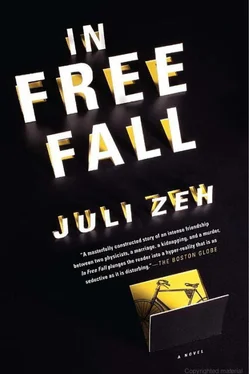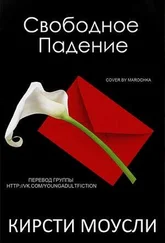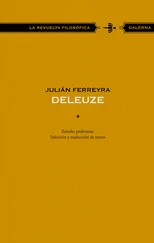Few people master the art of fearing the right things.
WE DID NOT HEAR EVERYTHING but we saw most of what happened, for one of us was always there.
A detective with a fatal headache—who loves a theory of physics and does not believe in coincidence—solves his final case. A child is kidnapped but does not know it. A doctor does what he should not do. One man dies, two physicists fight, and a young police officer falls in love. In the end, everything seems different from what the detective thought it was, yet exactly the same. A man’s ideas are his score, his life the twisted music.
It went, we think, something like this.
CHAPTER 1, IN SEVEN PARTS
Sebastian cuts curves. Maike cooks. Oskar comes to visit. Physics is for lovers.
AS YOU APPROACH IT FROM THE SOUTHWEST, at a height of about five hundred meters, Freiburg looks like a bright, worn patch in the folds of the Black Forest. It lies there as if it had fallen from the heavens one day, right at the feet of the mountains. The peaks of Belchen, Schauinsland, and Feldberg stand in a ring around it. Freiburg has existed for mere minutes in relation to these mountains, yet the town behaves as if it has always been there, next to the river Dreisam.
If Schauinsland were to ripple its slopes in a shrug of indifference, hundreds of people cycling, riding in cable cars, or looking for butterflies would die; if Feldberg were to turn away in boredom, that would be the end of the entire district. But the mountains don’t do that. Instead, they turn their somber faces to the goings-on in the streets of Freiburg, where people set out to entertain. Every day, mountains and forests send a swarm of birds into the city to gather the latest news and report back.
The Middle Ages live on in the ochre yellows and dusty pinks of the narrow lanes where thick shadows gather. The roofs are dotted with dormer windows, ideal landing spots unless they are adorned with bird spikes. A passing cloud sweeps the brightness from the facades. A girl with pigtails is buying an ice cream on Leopoldring. Her part is straight as an arrow.
A few beats of the wings, and here is Sophie-de-la-Roche-Strasse, so leafy and green that it seems to have its own microclimate. There is always a light breeze blowing here, making the leaves at the top of the chestnut trees rustle. The trees have outlived by a century the town planner who planted them, and they have grown larger than he had envisaged. Their long-fingered branches brush the balconies, and their roots bulge beneath the pavement and dig their way under the walls of the canal that flows by the buildings’ foundations. Bonnie and Clyde—one head of brown and one of green—paddle along against the current, quacking away, always turning at the same spot, and allowing themselves to be carried downstream. On their conveyer belt they travel faster than the people walking on the canal path, at whom they look up, begging for bread.
Sophie-de-la-Roche-Strasse radiates such a feeling of well-being that an objective observer might think its residents are all at peace with the world. Because the canal makes the walls damp, the front doors are wide open so that the walkways over the water look like tongues hanging out of gaping jaws. Number 7—in tasteful white stucco—is without doubt the most beautiful building on the street. Wisteria cascades down from it, sparrows chirp in the swathes of ivy on the walls, and an old-fashioned lantern dozes in the porch, waiting to be lit at night. In an hour or so a taxi will come around the corner and stop at this building. The passenger in the backseat will raise his sunglasses in order to count change into the driver’s hand. He will get out of the car, tip his head back, and look up at the windows on the second floor. A couple of doves are already picking their way across one of the window ledges, nodding and bending, fluttering upward occasionally to look into the apartment. These winged observers watch Sebastian, Maike, and Liam closely on the first Friday evening of every month.
BEHIND ONE OF THE WINDOWS, Sebastian is sitting cross-legged on the floor of his study, head bent over something. He is surrounded by scissors and bits of paper, as if he were making Christmas decorations. Crouching next to him is Liam—blond and pale like his father, a mini-Sebastian down to his posture. He is looking at a sheet of red card on which the laser printer has marked a zigzag curve, like an outline of the Alps. As Sebastian puts the scissors to the card, Liam raises a warning finger.
“Wait! Your hands are shaking!”
“That’s because I’m trying hard to hold still, clever clogs,” Sebastian snaps. Liam’s eyes widen in surprise and Sebastian regrets his tone.
Sebastian is on edge, as he is on the first Friday evening of every month. As usual, he puts it down to having had a bad day. Little things can spoil his mood on the first Friday of every month. Today it was an encounter on the bank of the Dreisam, where he takes a break from his lectures at lunchtime. He passed a group of people who were standing around a mound of earth a little way off the main path for no apparent reason. In the earth was a pathetic-looking seedling held upright only by a construction of wooden sticks and rubber bands. Three gardeners were leaning on spades nearby, and a lanky man in a dark suit, with a little girl hanging on to his leg, stepped up to the mound of earth and made a small celebratory speech. The tree of the year. Black apple tree. Love for home and hearth, for nature, for Creation. Elderly ladies stood around silently in a semicircle. Then came the thrust of the spade and a pathetic shovelful of earth, and the little girl poured water from a tin can. Applause. Sebastian couldn’t help thinking about what Oskar would have said if he had seen them. “Look, a herd of forked beings celebrating their own helplessness!” And Sebastian would have laughed and refrained from saying that he felt very much like the tree of the year, actually. Like a seedling dwarfed by its scaffolding.
“Do you know about the tree of the year?” he asks his son, who shakes his head and stares at the scissors that have fallen still in his father’s hand. “It’s nonsense,” he adds. “The worst rubbish imaginable.”
“Oskar’s coming today, isn’t he?”
“Of course.” Sebastian starts cutting. “Why?”
“You always talk about strange things when Oskar’s coming. And,” Liam continues, pointing at the card, “you bring work back home.”
“I thought you liked measuring curves!” Sebastian replies indignantly.
At ten, Liam is already clever enough to know not to reply to this. Of course he loves helping his father with physics experiments. He knows that the zigzag line marks the result of a radiometric measurement, even though he can’t explain the meaning of “radiometric.” The integral under the curve can be measured by cutting out the surface area and weighing the card. But Liam also knows that there are computers at the university that will give you the answer without cutting and weighing. This could definitely have waited till Monday. Sebastian has brought it home for Liam to have fun with and because he finds this activity calming late on a Friday afternoon. Even though the chopping board and the sharp knife that they need to cut out the tiny jagged bits are with Maike in the kitchen.
When Maike is cooking for Oskar, the kitchen utensils are hers and hers alone. Every time Maike tells Sebastian about the new dish she is trying out that evening, he wonders why Oskar’s visits are so important to her. He would have thought that Liam’s hero worship of the big-shot physicist from Geneva would put her off Oskar, not to mention the heavily ironic tone of voice in which Oskar invariably addresses her. Yet it was Maike herself who had started the tradition of dinners with him ten years ago, and she is the one who has insisted on them to this very day. Sebastian suspects that, consciously or unconsciously, she is trying to steer something in a controlled manner. Something that should be playing out before her very eyes, rather than developing unchecked in hidden corners. They have never spoken about what this certain something might be. Deep down, Sebastian admires his wife’s calm persistence. “He’s coming on Friday, isn’t he?” she asks, and Sebastian nods. That is all.
Читать дальше













